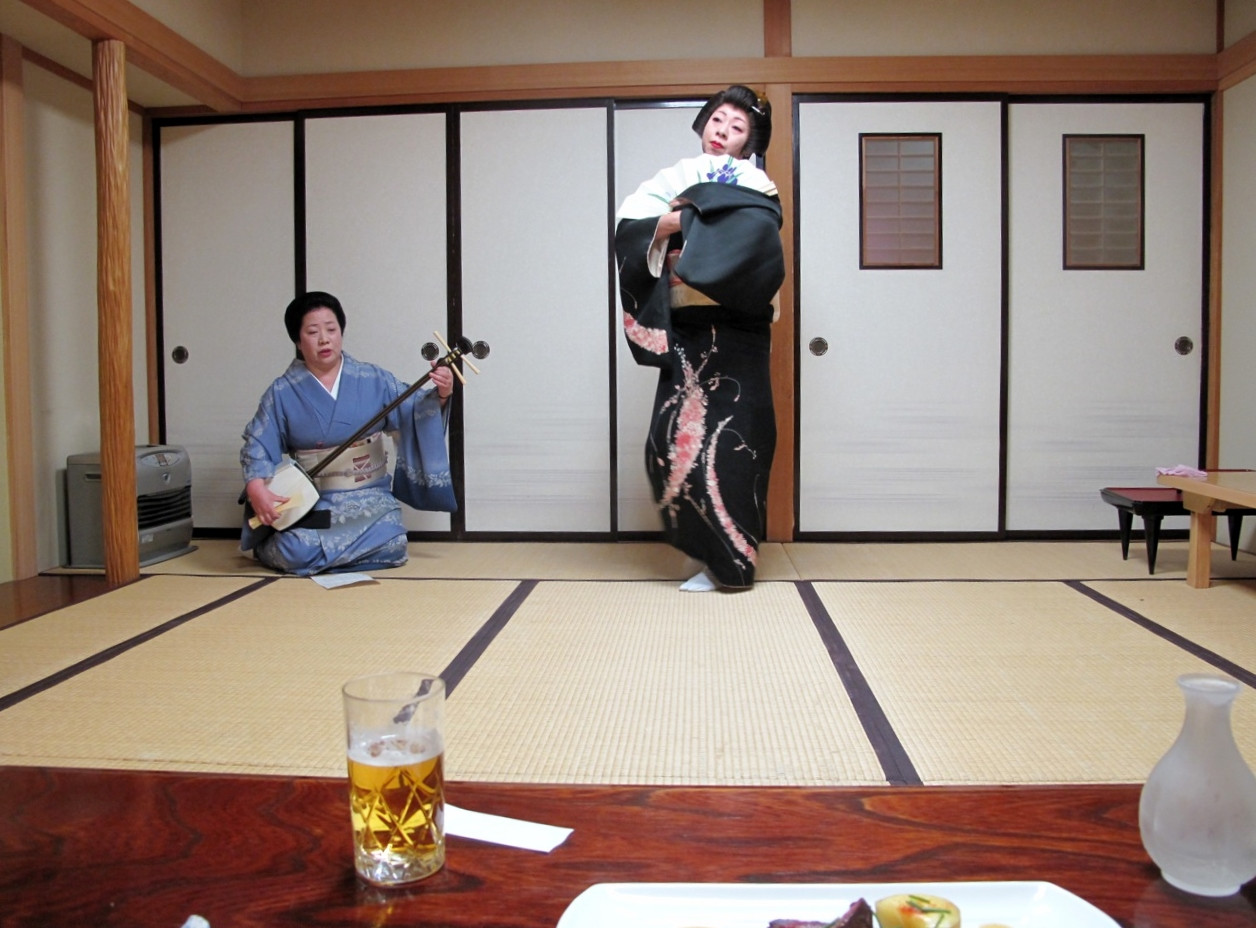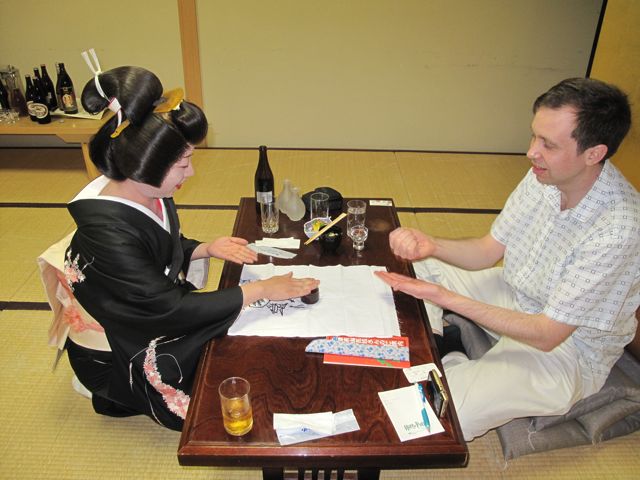I've been told that onsen geisha still exist on the web site Immortal Geisha.
Another place to see onsen geisha is Higashiyama Onsen, which is in Aizu Wakamatsu, Fukushima province. (Thanks Immortal Geisha user Hisayakko) I had dinner with two geishas from Higashiyama Onsen there.
I booked an evening with geishas via the Higashiyama Onsen Tourism Association. Their page about geishas (in Japanese) is http://www.aizu-higashiyama.com/geigi/geigi.html
I hired a room for the event from Hotel New Palace, where I stayed while in Aizu Wakamatsu. As the hotel isn't within Higashiyama Onsen, I had to pay the geishas their taxi fare. One reason I chose the Hotel New Palace for accommodation was that it allowed solo guests without a surcharge, so non solo travellers may choose a location within Higashiyama Onsen.
I hired a volunteer (not professional) translator via the Aizu Wakamatsu International Association. The translator was only available on a limited number of days, so it's advisable to contact the association sooner rather than later while planning your trip.
For the Tourism Association and the Hotel New Palace, I communicated by email in Japanese, thanks to fellow Travel Answers user Chocolate.
The geishas I had dinner with spoke a bit of English. I can't really say how much English they could speak, because having a translator available meant they mainly spoke in Japanese. They had had foreign customers before the Tohoku earthquake and Tsunami, but none since. They hope to see more foreigners come!
As well as talking, one of the geishas performed two dances while the other played the shamisen, and we played some ozashiki asobi (geisha games).
I didn't ask an awful lot of questions about what geishas were during the evening, so I didn't even ask them if they considered themselves onsen geishas, let alone what an onsen geisha is, but I had a great time!


(I checked if posting photos on the internet was ok, and it was - in fact, my translator posted some photos while I was still on my trip)


